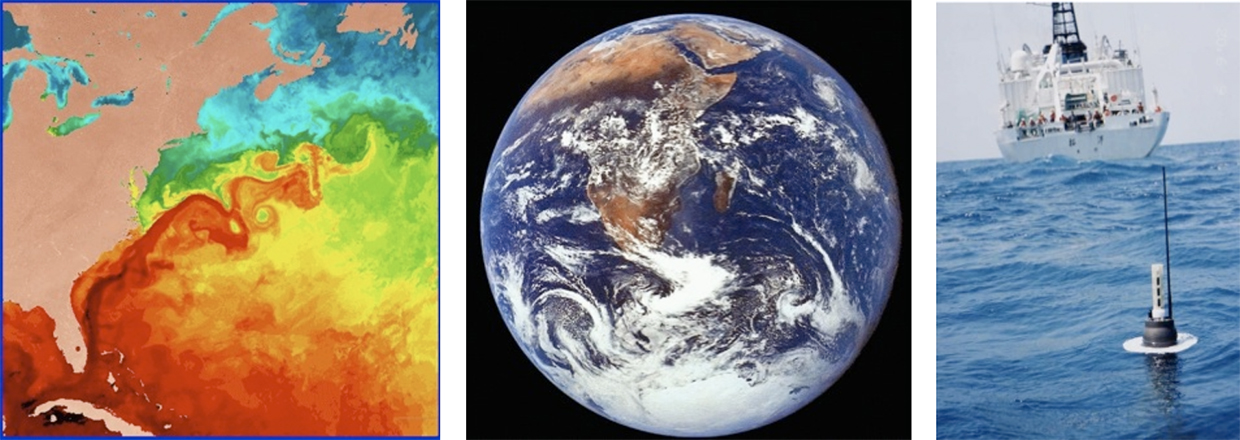The purpose of these webpages is to provide some notes and figures and a link to the slideshow presentation made in class. The notes are not comprehensive, and do not replace the required readings. Much of these notes lean heavily on Lynne Talley’s online material for SIO 210 at Scripps.

Notes:
1. What is physical oceanography?
Physical oceanography is the study of the fluid motions of the ocean. It’s goal is to understand the processes (and their significance) at all time and space scales, to simulate these processes, and to make predictions if possible. What phenomena do physical oceanographers study? (e.g. surface and internal waves, air-sea exchanges, turbulence and mixing, acoustics, heating and cooling, wave and wind-induced currents, tides, tsunamis, storm surges, large-scale waves affected by earth's rotation, large-scale eddies, general circulation and its changes, coupled ocean-atmosphere dynamics for weather and climate). What external forces act on the ocean? (e.g. wind [waves, turbulence, large scale waves, circulation], heating due to the sun and geothermal energy, cooling, evaporation due to the sun and wind, precipitation, tidal potential [the moon and sun], earthquakes, gravity, friction). What internal forces act on the ocean? (pressure gradients, viscosity or friction).
2. Some important concepts
Physical oceanography is a relatively young science. Theory of wind-driven ocean circulation dates to 1950’s. Equations for the motion of a turbulent ocean on a rotating sphere, driven by variable winds and solar heating are unsolvable. We need to make simplifying assumptions in order to understand the ocean - but most importantly we need observations. Owing to the size of oceans, and technological complexity and expense of measurements, the ocean is under-sampled. Sampling error is pretty much insurmountable in oceanography and can lead to misleading hypotheses. We think we know the time-mean ocean circulation quite well, but are only beginning to understand the time-varying ocean. Satellite data has revolutionized our understanding of surface ocean, but lacks information about deep ocean (some inferred).
Reading
JK1, RS1-2
Last modified: Sep 2016




